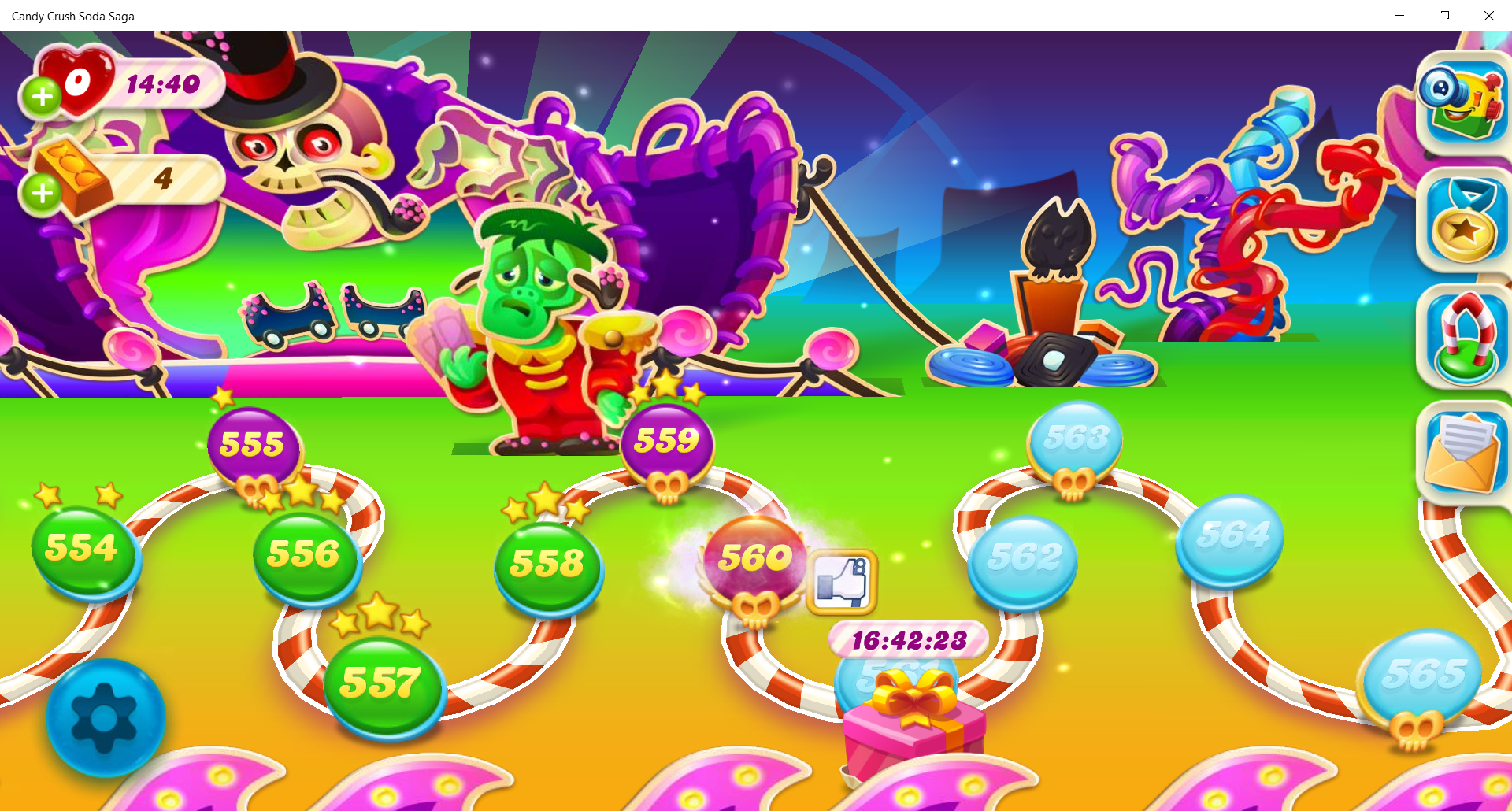 I play games.
I play games.
There, I said it. From playing the remasters of Homeworld II to Civilization 5. And, for those moments when I’m waiting around, I play Candy Crush Soda off and on.
There are lessons.
I’m at level 560 – an area that presently only has 3 high scores, whereas lower levels are full of high scores – about 8 I think. Few have bothered to come this far in the game, probably switching to something new. The same holds for other games I play.
The same holds true for everything I do.
Maybe I could write about tenacity, how the games that are fun are only so when they become challenging. At the levels I play at, I am challenged. Without challenge – if things are too easy – they are not fun. The more difficult something is, the more of a challenge it is, and the more of a triumph when you get further along. In Candy Crush Soda, I know that only two others have made it further than I. It’s tough.
And it depends, sometimes, on serendipity – like Life. You can make all the right moves and lose. Sometimes you make some wrong moves and win. Serendipity. Sometimes you can use all your advantages that you have accrued and still fail, sometimes you can use them and it’s overkill. Just like Life.
Sometimes you fail. Sometimes you win. But if you keep pushing, you eventually win.
And ultimately, you lose.
That’s Life.
And in the end, every game has you playing by someone else’s rules – and you learn a lot about rules and how games are made simply by playing them beyond where others give up.
Just like Life.


